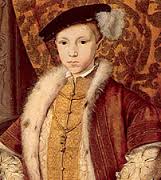Wilfred Owen
 Probably the most remembered war poet of all time, Wilfred Owen is known for being the man behind the memorable poems such as: The Anthem for Doomed Youth, Dulce et Decorum dest and To Eros. Sadly, Owen was killed in action exactly one week (and nearly to the hour) before the end of the First World War, in France aged only 25 years old.
Probably the most remembered war poet of all time, Wilfred Owen is known for being the man behind the memorable poems such as: The Anthem for Doomed Youth, Dulce et Decorum dest and To Eros. Sadly, Owen was killed in action exactly one week (and nearly to the hour) before the end of the First World War, in France aged only 25 years old.
Wilfred Edward Salter Owen's was born on 18th March 1893 to Thomas and Harriet Susan Owen in Shropshire. Owen was the eldest of four siblings- Harold, Collin, Mary and Millard. Harriet Susan had high hopes for her eldest son and was extremely proud of him. As a young child Owen lived with his parents in a house owned by his maternal mother's father- Edward Shaw, but after Mr. Shaw's death in 1897, the house was put up for sale and the Owens faced an economic crisis. The family moved to the back streets of Birkenhead where Thomas (Tom) Owens had a temporary job, working for the local station. Thomas was then transferred to Shrewsbury where the Owens lived with their paternal grandparents. In Wilfred Owen's final years of formal education, he taught as a pupil- teacher. He then went to the University of London and went to France to teach English shortly before the war started.
Owen said that he only went to war because he did not want the English language to be lost! Feeling guilty, he left France in 1915 to enlist in England for the army. Unusually for a man, Owen was 5 ft 5 and weighed only 9 stone! Had he attempted to enlist a year earlier, he would have been turned down because of his height and his weight but by 1915, England was beginning to become desperate for soldiers. He trained to be an officer at Hare Hall Camp. When he was sent to the Front Line in France, he was blown into the air by an exploding shell and was unconscious for the next few days. Owen awoke lying in the remains of a friend and fellow officer. Following this horrific incident, Wilfred Owen was sent to Craiglockhart War Hospital in Scotland where he was diagnosed with a mental condition commonly known as shell shock. At the military hospital, Owen persuade his childhood dream of becoming a poet. He was editor to the hospital magazine: 'The Hydra', in which he had some of his poems published. During his stay at the hospital, Owen met the notable poet Siegfried Sasoon who was there not because he was suffering from shell shock, but more because he was writing against the British propaganda and revealing how disgusting, terrible and horrifying the trenches actually were. Sasoon became Owen's friend and mentor, he assisted Owen in writing poems such as Anthem for Doomed Youth, the title was changed by Sasoon from 'Dead Youth' to 'Doomed Youth'. When Owen had recovered he returned to the Front Line at the very end of August of 1918.
During the crossing of Sambre- Oise Canal, Wilfred Owen was killed in action. He died exactly one week before the signing of Armistice, which ended World War I. Only five of his poems were published during his lifetime and the rest after his death and indeed the war. He will forever be remembered as one of our greatest war poets of all times.



Comments
Post a Comment